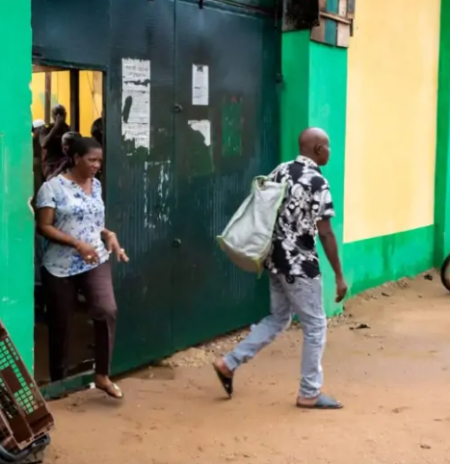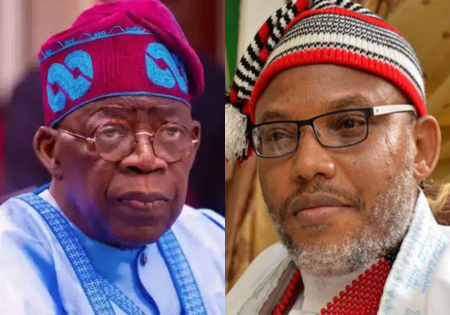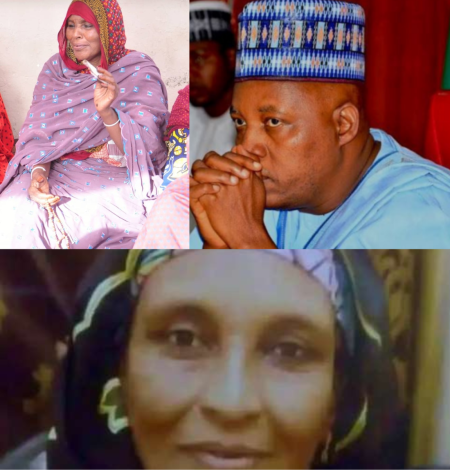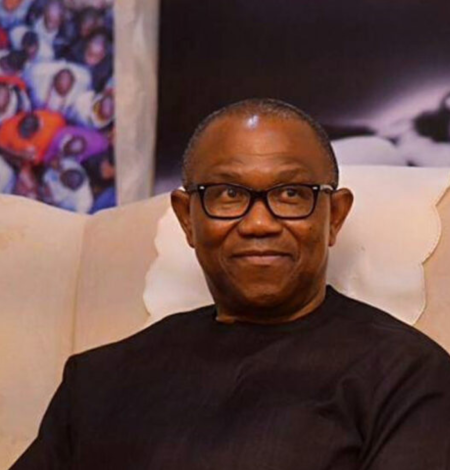A few months to the end of President Muhammadu Buhari’s tenure, concerns mount over the continued incarceration of Nnamdi Kanu, leader of the Indigenous People of Biafra, IPOB, and a social media critic, Abubakar Idris, popularly known as Dadiyata.
Kanu was first arrested in 2015 and was charged on an 11-count bordering on terrorism, treasonable felony, managing an unlawful society, publication of defamatory matter, illegal possession of firearms and improper importation of goods, among others.
In 2017, Justice Binta Nyako of an Abuja Federal High Court had granted the IPOB leader freedom. Following his freedom that same year, Kanu fled Nigeria to Europe, where he continued his push for the actualization of Biafra.
The IPOB leader fled Nigeria after troops of the Nigerian Army under the codename Operation Python Dance stormed his residence in Afaraukwu, Abia State in an attempt to arrest him.
Five years after escaping to Europe, Kanu was rearrested in Kenya and brought back to Nigeria through an extraordinary rendition. His rearrest was said not to have followed due process; however, upon his return to Nigeria, the IPOB leader was made to continue his trial.
Following the issues and irregularities surrounding Kanu’s rendition and arrest, the Court of Appeal sitting in Abuja on October 13, 2022, termed the rendition illegal and dropped all terrorism charges against Kanu by the Federal Government after a series of court appearances.
Justice Oludotun Adebola upheld the appeal of the detained IPOB leader and discharged and acquitted him, adding that his abduction was unlawful.
But, the Attorney General of the Federation, AGF, Abubakar Malami said Kanu was only discharged but not acquitted.
Also, Dadiyata, a known critic of the Kano State Governor, Abdullahi Ganduje, has been missing since August 2, 2019. He was picked up by men believed to be security agents from his house in Barnawa area of Kaduna State.
Though the DSS and Nigeria Police Force denied responsibility for Dadiyata’s disappearance, his wife, Haneefa, continued to insist that the Nigerian security agencies are behind her husband’s disappearance.
However, Deji Adeyanju, a socio-political activist, described the refusal of Buhari’s government to obey court orders as anti-democratic.
Adeyanju said Buhari might not order Kanu’s release due to his ego.
Speaking with Rawloaded, Adeyanju said: “It’s undemocratic, barbaric, and sad; ordinarily, people want a democratically elected government to take them further but we have been begging the government to comply with the ruling of courts.
“In Oluku vs the Lagos State Government, wherein the Supreme Court ruled that nobody needs the rule of law more than the government. That the government is the one that needs to obey the law more than any other people; if the government does not obey the law, how then will the people do the same?
“It’s sad that Nnamdi Kanu is still in custody and naturally, he should be released. They have done enough harm and damage to the man already.
“I don’t see him being released before the end of Buhari’s tenure because the president has too much ego and he seems to have a personal sentiment against Kanu, so I don’t see him doing such.”
On Dadiyata, he said: “Dadiyata’s case is very sad because nobody knows his status or where he is. It can be generally assumed that Buhari’s regime has kept him incommunicado for years in one of their detention facilities.
“He should just be released to his family, he was very critical of Buhari’s regime.”
Commenting on Kanu’s travails, Special Counsel to the IPOB leader, Aloy Ejimakor, said the Biafra agitator has become a political prisoner.
Stressing that Kanu’s continued detention was not backed by law, Ejimakor said the IPOB leader has become a political prisoner.
According to Ejimakor, “Buhari has to release him, simply because it is the right thing to do. Besides the fact that Kanu should not have been renditioned and detained in the first place. Buhari should have taken umbrage in the barrage of court judgments and the United Nations pronouncement that unequivocally called for Kanu’s release.
“One of such judgments even awarded him quantum compensation for the illegal rendition and detention. Therefore, the refusal to release Kanu meant that his detention has now become extrajudicial or one that is not backed by law. You can also say that Kanu is now a political prisoner, a prisoner of conscience. It cannot stand, not for long.”







